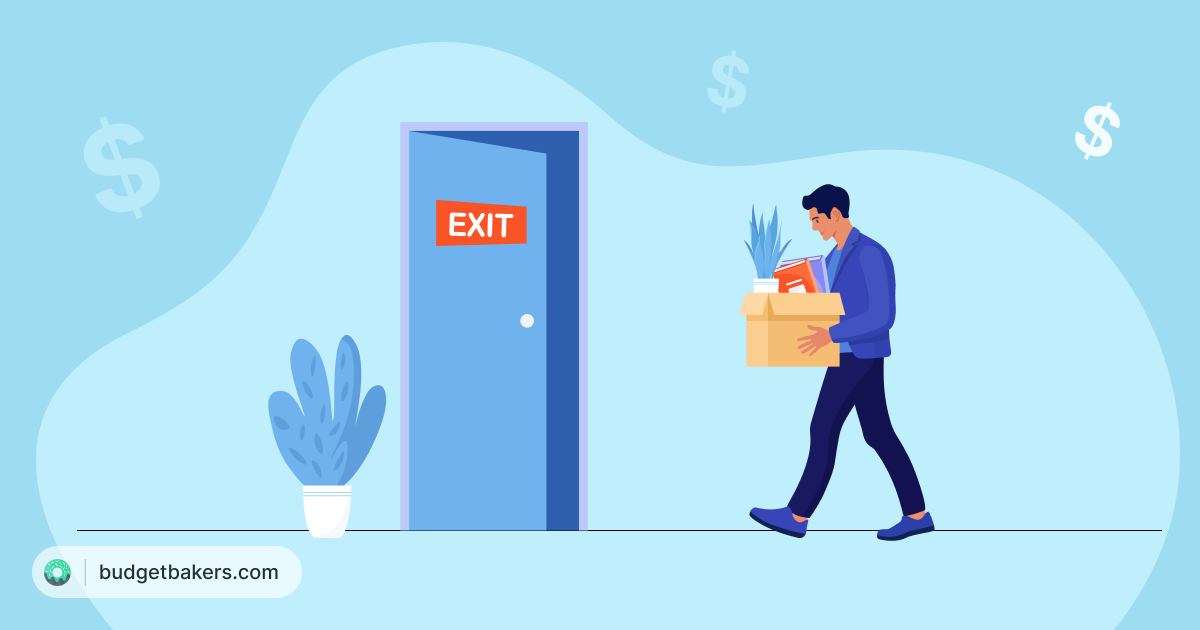Written and fact-checked by business journalist
Leonie Bauer
Your budget is suffering from ever increasing costs and you want to know how to save on rent? You’re not alone. Housing costs are the single largest expense for most Americans – especially since the beginning of the year.
In the first six months of 2022, the average US household spent 33.1% of its budget on rent. According to a new study from HouseCanary, that’s an average of $2,495 for a single family home; 13% more than in 2021.
Price increases extend to all types of rental housing, especially 2 and 3 bedroom apartments, which are the most in demand.
Two of the reasons for this are rising interest rates and surging real estate prices, making it impossible for many Americans to afford a home of their own – so demand for rental properties is on the rise.
As a result, rents are becoming really expensive.
So how can you keep your rental costs in check? We’ll explore this question in this article by shedding light on the reasons for rising rents and providing tips on how to save on rent.
How to Save on Rent
Expensive rents might be a major financial problem for you and many other people. The money you saved during the lockdown may not be enough to pay a higher rent in the long run. Not to mention today’s exorbitantly high gas and electricity bills, which may take a big chunk out of your savings.
In addition, wages are not keeping pace with the rising costs, compounding the financial strain.
So what can you do to find and keep affordable housing without falling into financial ruin? Here are a few tips.
- Choose an Affordable Location and Size
Are you currently looking for an apartment? Then you should reconsider the location of your home. Because if you want to pay less rent, it’s worth exploring other neighborhoods, other cities or even other states.
Rental prices aren’t rising at the same rate everywhere – on the contrary, in some cities you still find large apartments and houses for relatively little money. Take a look at the most expensive and cheapest US metropolitan areas in the first half of 2022:
| Cities with Highest Monthly Rents | Price of Single-Family Homes in 2022 | Cities with Lowest Monthly Rents | Price of Single-Family Homes in 2022 |
| Los Angeles; Long Beach; Anaheim, California | $4,664 | Youngstown; Warren; Boardman, Ohio | $861 |
| San Diego; Carlsbad, California | $4,617 | Madison, Wisconsin | $1,000 |
| Bridgeport; Stamford; Norwalk, Connecticut | $4,352 | Little Rock; North Little Rock; Conway, Arkansas | $1,153 |
| San Jose; Sunnyvale; Santa Clara, California | $4,294 | Flint, Michigan | $1,243 |
| Oxnard; Thousand Oaks; Ventura, California | $4,259 | Davenport, Iowa; Moline; Rock Island, Illinois | $1,313 |
As you can see, there are big national differences when it comes to the level of rents. You just have to be a little flexible to take full advantage of more affordable areas. If you’re a young professional who isn’t tied to a specific city, it’s worth considering other regions as potential places to live.
But even a few miles away from the hip neighborhoods can be worthwhile. Here you don’t live within walking distance of grocery stores, coffee shops, and movie theaters, but you can still benefit from these districts while paying much less each month.
Besides the amenities, one of the advantages is higher wages. Higher-paying jobs are often located in the areas that are the most desirable to live in. So if you work in one of these neighborhoods, don’t move too far away. Otherwise, the savings in rent might erode due to higher transportation costs.
In addition to location, the size of your apartment can make a financial difference. According to financial consulting firm NerdWallet, moving from a 3-bedroom to a 2-bedroom unit could cut your rent by $300 a month, or 3,600 per year (!) depending on where you live. It may mean losing a guest or home office room, though.
So you should ask yourself: How much space do I really need? Is downsizing to a smaller, cheaper apartment an option?
- Search in Winter
This tip may seem a little strange at first, but there’s a reason we list it. As a matter of fact, asking rents in the same city are not the same at every time of the year.
Above, you can see the best and worst months for some popular cities (as well as the peak-to-trough discounts), provided by real estate portal RentHop. On average, they show a “discount” of about 3.4% for 2-bedroom apartments between cheaper months and peak months.
Their key finding? Rents tend to be highest in the summer, when students relocate to college towns in preparation for the new semester. Families with children also usually wait until the school year finishes before moving. Therefore, searching for an apartment between May and September is usually highly competitive.
In addition, many people are reluctant to move in the winter because relocating during the cold season is simply not appealing. So landlords tend to offer their apartments at lower prices to encourage people to move in during this time.
So if you have a little time, wait and keep comparing prices. You will see they will most likely become a little lower.
- Know All Potential Rules and Costs
Ask your potential landlord any important questions about the apartment before you commit to a contract. Are there any insects in the apartment or building? Have there been noise issues or other major problems in the past? Does your future neighbor have a baby, or is there an airport nearby that you don’t know about?
You should also be cautious about high security deposits. In most areas, it’s possible to move in with only the first month’s rent and a security deposit equal to one month’s rent.
However, some landlords require the first month’s rent, a security deposit AND the last month’s rent. This can put a lot of financial strain on you at the beginning of your tenancy.
Here’s the limit each state sets on the amount of security deposit landlords can charge. States not listed have “no statutory limit,” meaning they don’t specify the amount landlords can charge.
| State | Limit |
| Alabama, Delaware, District of Columbia, Hawaii, Kansas, Massachusetts, Nebraska, New Hampshire, New Mexico, New York, North Dekota, Rhode Island, South Dakota, | One month’s rent |
| Arizona, Michigan, New Jersey, North Carolina, | One and one-half months’ rent |
| Alaska, Arizona, Arkansas, California, Connecticut, Maine, Maryland, Missouri, Pennsylvania, Virginia, | Two month’s rent |
| Nevada | Three month’s rent |
But what are your options if you no longer like your apartment or neighborhood and decide to terminate your lease? What if you need to move because of a promotion or job change? Make sure the penalties for leaving and the rules for subletting are clearly stated in your lease. Don’t just rely on the landlord’s word.
The lease should also list any fees for late rent payments or fixing problems you’ve caused. This might include unclogging a drain or filling holes drilled in your wall.
Also ask about rent increases. Some areas have rent control policies that prohibit landlords from arbitrarily raising rents. Plus, you can still find fair and reasonable landlords out there who base their rent on the cost of living.
- Get a Roommate
The easiest way to pay less rent is to split the cost of your apartment. If you pay $2,000 for a 2-bedroom apartment and opt to live with a roommate, you’ll save an additional $1,000 per month, or $12,000 per year.
Before you start looking for a new roommate, though, you should first get permission from your landlord. Legal requirements for subtenants vary, and some landlords require that each tenant co-sign the lease.
Next, consider obtaining a credit and background check on your new potential roommate to avoid any nasty surprises later. You might ask for a credit report, the last three months’ pay slips, or some references. A security deposit can give you additional security in case of damage or rental delay.
If you don’t want a permanent roommate, consider posting your room on Airbnb. You can use our calculator to see how much money you could potentially make.
- Save on Utilities
Utilities make up a significant portion of your total rent, especially in times of energy crises and inflation. So if moving to a cheaper area or living with a roommate isn’t an option for you, lowering your monthly utility costs can be an efficient way to save money on rent.
First, try to monitor your energy use. This way you can find out where you can reduce your consumption. For example, you might want to reduce your heating or your water consumption.
Turn down your thermostat a little on warmer days, or turn it off altogether. Or wash your clothes at 90 degrees instead of 110, because heating the water is the most expensive part of washing.
Plus, upgrading to more efficient appliances, like an economy showerhead, will lower your costs. To save power, turn off all devices you aren’t using. This consumes far less electricity than standby mode.
| Cost saver | Savings per year |
| LED light bulbs | $75 |
| Energy Star refrigerator | $60 |
| Unplugging electronics when not in use | $100 |
| Sealing and insulating leaks | $200 |
| Turning thermostat down 33 degrees Fahrenheit | $130 |
| Switching off lights | $30 |
| Taking four-minute showers | $45 |
| Washing once less per week | $20 |
Want to learn more about the energy crisis outside the US? Read our post on energy costs in the EU.
- Consider Giving Up Your Parking Space
Sometimes even small things can make a difference. One of them is renting out your parking space, if you have one. While this may come at a loss of convenience, it’s worth rethinking your parking situation to lower your rental costs.
Do you own a car that’s permanently at your disposal? You want it parked outside your door every day? Is there free parking a few blocks away?
Sharing your parking space or renting it out to someone entirely can save you as much as $150 a month – that’s a whopping $1,800 a year.
You can place an ad in the local paper or simply search social media for a tenant of your parking space. Alternatively, check with your neighbors and friends to see if they are interested in a parking space.
The Bottom Line
As you can see, there are several ways to keep your rent in check despite significant price increases. Some steps require a little more effort and equipment than others, but they can also save you more money.
Ultimately, it depends on whether you’re willing to move to a new area, share your home or parking space with someone, or upgrade your appliances.
What we urge you to do is to know your rights as a tenant. If your landlord raises the rent without giving you a legal reason, you should check local laws regarding price breaks and rent limits. If the increase isn’t lawful, you should talk to your landlord. In difficult cases, a lawyer can help.
But sometimes just talking to your landlord is enough to change the situation. Keeping a good tenant can be in their best interest, as it can save them time, energy and money finding a new tenant.


